India Hot Topics
Indian Lab Owner Imprisoned for Nearly $500 Million Genetic Test Scam.

In a shocking revelation of white-collar crime, an Indian laboratory owner has been sentenced to imprisonment for orchestrating a staggering $500 million genetic test scam. The case highlights the lengths some individuals are willing to go to manipulate the healthcare system for personal gain. This incident serves as a stark reminder of the importance of ethical conduct and stringent oversight within the medical industry.
The Scam Unveiled:
The intricate web of deception began to unravel when authorities uncovered a massive scam centered around genetic testing. The laboratory owner, with a complex network of accomplices, reportedly manipulated patient information and billing procedures to generate astronomical revenues through fraudulent genetic tests. The estimated financial loss due to this scheme has shocked both the medical community and the general public.
Exploiting Trust:
The heart of any medical profession lies in the trust patients place in healthcare providers. The lab owner’s actions not only betrayed this trust but also capitalized on the vulnerability of individuals seeking accurate diagnoses and treatment. The extent to which unethical conduct can pervade the healthcare industry is a grim reminder of the vigilance required to ensure patients’ well-being.
Impact on Healthcare System:
The repercussions of the scam go beyond financial losses. The diversion of resources and funds from genuine medical needs to fraudulent activities can strain the entire healthcare system. Moreover, it undermines the credibility of legitimate medical tests and therapies, potentially eroding public trust in healthcare institutions.
Legal Accountability:
The swift response from law enforcement agencies and the judiciary is a reassuring sign of accountability. The lab owner’s imprisonment sends a strong message that fraudulent activities in the medical sector will not be tolerated. It also underscores the need for rigorous regulation and oversight to prevent such scams from flourishing.
Ethics and Transparency:
The incident underscores the significance of ethical conduct and transparency within the medical industry. While most healthcare professionals are committed to the well-being of their patients, a case like this reminds us of the importance of upholding the highest ethical standards and maintaining open communication with patients.
Lessons Learned:
The $500 million genetic test scam serves as a cautionary tale, urging the medical community, regulatory bodies, and the public to remain vigilant against unethical practices. As patients, it’s essential to be informed and inquire about any medical tests or procedures recommended by healthcare providers. Regulatory agencies must continually adapt to emerging fraudulent tactics to safeguard the integrity of the healthcare system.
General News Platform – https://ihtlive.com/
Entertainment News Platforms – anyflix.in
Construction Infrastructure and Mining News Platform – https://cimreviews.com/
Podcast Platforms – https://anyfm.i
India
PM Modi’s “dos and don’ts” about AI-generated deepfake content during a conversation with Bill Gates

India’s cautious approach to embracing artificial intelligence has been emphasized by Prime Minister Narendra Modi, who has also acknowledged the urgent need for legislation to prevent potential misuse. During a discussion with Bill Gates, the founder of Microsoft, Prime Minister Modi emphasized the need to offer appropriate training prior to granting access to AI technologies.
Bill Gates stated that although artificial intelligence (AI) poses obstacles, it also offers enormous opportunities.
“AI has the potential to be abused if someone is given it without the necessary training. I proposed that we begin by adding transparent watermarks to stuff produced by AI. so that no one is led astray,” Modi stated.
“Anyone may utilize deepfake in an open nation like India. Recognizing that deep-fake content is produced by AI is essential. We must consider a few dos and don’ts,” he continued.
Additionally, PM Modi demanded the creation of precise criteria and the ability to discern between real content and deepfake works.
For instance, they might abuse my voice. It can first trick people, causing havoc on a large scale. When addressing the problem of deepfake, PM Modi stated that it is imperative to recognize that the content is artificial intelligence (AI) created and to cite its source.
Deepfakes are videos of people whose bodies or faces have been digitally manipulated to make them look like someone else. They are usually used for nefarious purposes or to disseminate misleading information.
The prime minister delivered a powerful warning against the careless application of AI, advising against considering technology to be nothing more than a “magic tool” that, if used carelessly, might result in serious injustices.
“There could be serious unfairness if we deploy AI as a magical tool. In favor of competition between people and AI chatbots like ChatGPT, Modi declared, “If AI is relied upon out of laziness…then it is the wrong path.”
Bill Gates echoed Modi’s remarks when he offered insights into the dynamic nature of AI research, describing the current phase as “early days” full of opportunity and difficulties.
“AI is still in its infancy, but I believe everyone uses it. On the same day, you’re taken aback by both its excellence and its shortcomings. It will accomplish tasks you believe are difficult and then fall short of completing tasks you believe are simple. I began my journey in Hyderabad, which was fortunate as Microsoft is commemorating 25 years in the nation, and it’s been an amazing experience. I was undoubtedly putting the team to the test there. Hey, we need to improve the accuracy. At present, it functions similarly to a copilot. It facilitates suggestions. But we still have to make the ultimate choice regarding the medication or the letter you wish to write.
General News Platform – https://ihtlive.com/
Entertainment News Platforms – anyflix.in
Construction Infrastructure and Mining News Platform – https://cimreviews.com/
Podcast Platforms – https://anyfm.in/
Indian Politics
Amit Shah mocked Rahul Gandhi about electoral connections with his “hafta vasooli”
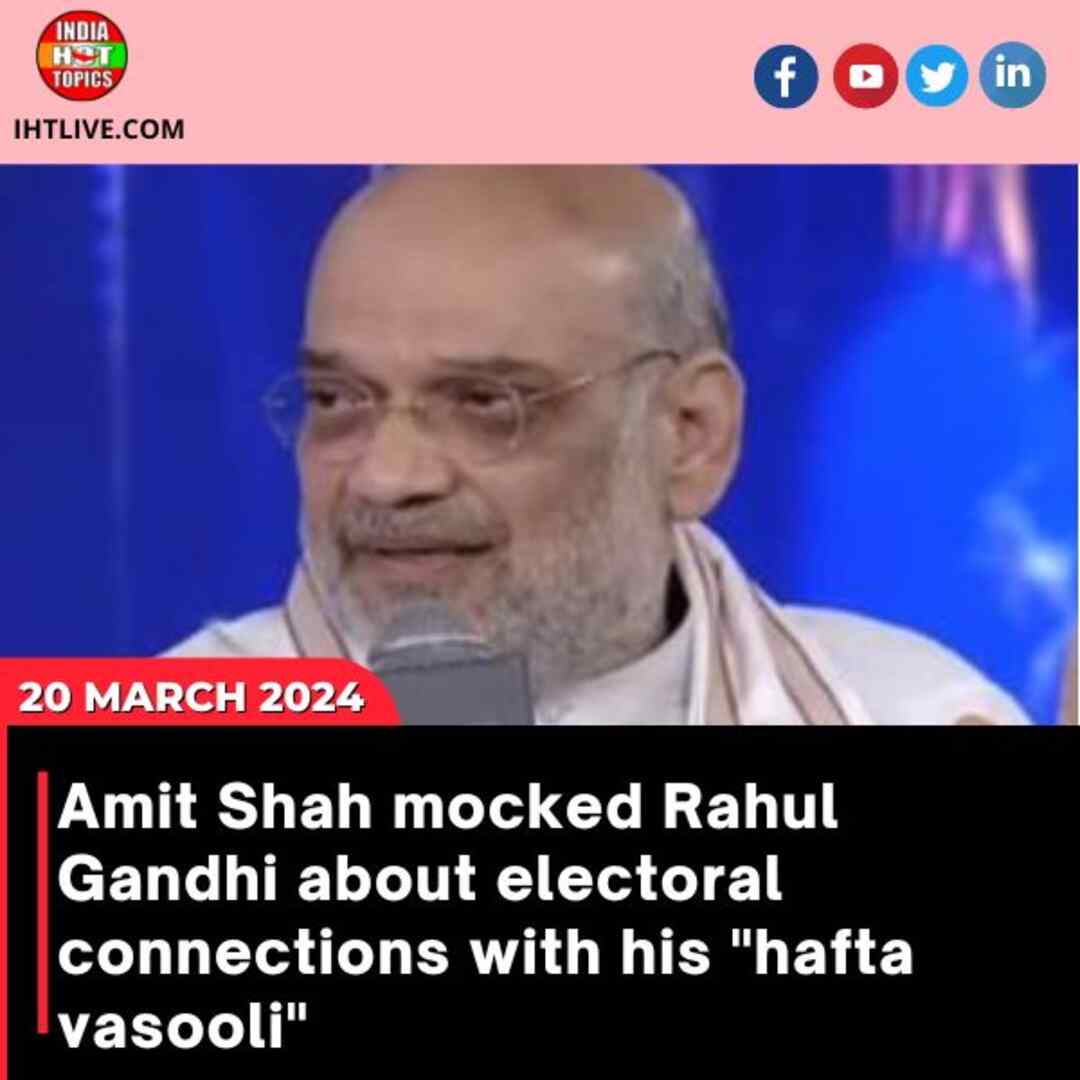
Union home minister Amit Shah on Wednesday lashed out at Congress MP Rahul Gandhi over the latter’s ‘biggest extortion racket’ jibe on electoral bonds. “Gandhi also got ₹1,600 crore. He should explain where he got that ‘hafta vasooli’ from. We say it is a transparent donation, but if he says it is vasooli, he should give details.”
When asked if the Bharatiya Janata Party would declare the list of donors, the minister said that the India bloc would ‘not be able to show its face’. Last week, several political parties revealed the source and amount of donations received through poll bonds. According to the EC data, BJP had received ₹6,061 crore (47.5% of total redeemed value), followed by the Trinamool Congress with ₹1,610 crore (12.6%) and Congress with ₹1,422 crore (11.1%)
With ₹1,368 crore, Future Gaming of lottery king Santiago Martin was the largest buyer of electoral bonds; roughly 37% of that amount went to the Dravida Munnetra Kazhagam (DMK), the ruling party in Tamil Nadu.
The Janata Dal (Secular), led by HD Deve Gowda, was given bonds valued at ₹89.75 crore, of which ₹50 crore came from Megha Engineering, which is the second biggest buyer of electoral bonds.
“There is a claim that we have had a large number of donations. This is untrue to the core. In contrast to the ‘Indi Alliance’ led by Rahul Gandhi, which received more than ₹6,200 crore, we have received ₹6,200 crore. How many seats does the ‘Indi Alliance’ have, considering that we have 303 seats and governments in 17 states? stated the Union home minister.
Shah made this comment after the Supreme Court declared electoral bonds to be “unconstitutional.” While expressing respect for the ruling of the Supreme Court, the minister claimed that poll bonds had nearly put an end to the use of dark money in politics.
Shah went on to criticize the INDIA bloc, claiming that they supported the “old system of cutting money to rule over politics once again” and that this was why they opposed the bonds.
General News Platform – https://ihtlive.com/
Entertainment News Platforms – anyflix.in
Construction Infrastructure and Mining News Platform – https://cimreviews.com/
Podcast Platforms – https://anyfm.in
Indian Politics
When Assam protests the CAA, Chief Minister Himanta Sarma vows he “will resign if” on the NRC
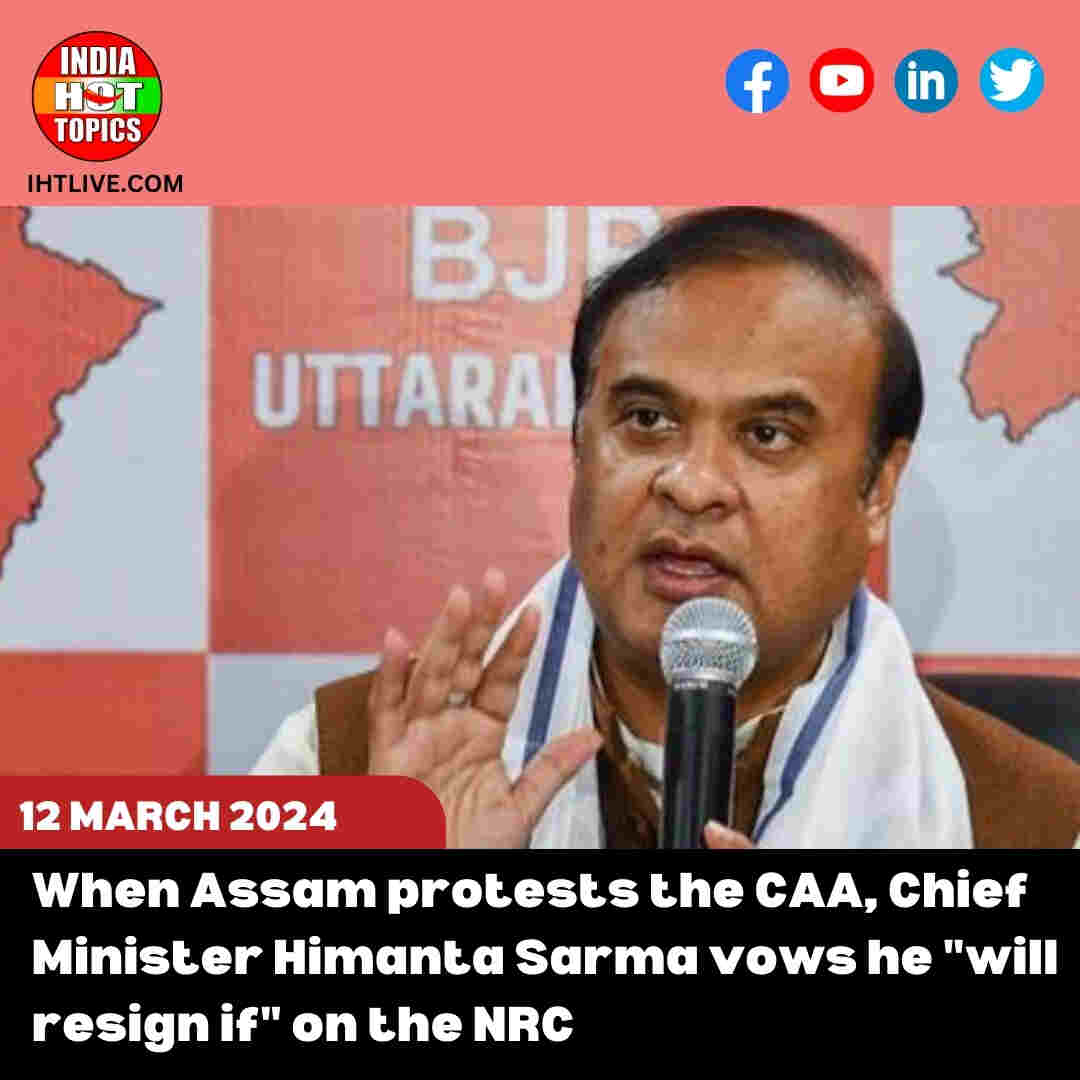
Assam chief minister Himanta Biswa Sarma said on Tuesday that he will step down first, even if one person who hasn’t applied for the state’s National Register of Citizens (NRC) is granted citizenship. This comes a day after protests broke out throughout the state in response to the Center’s notification of the controversial Citizenship (Amendment) Act, 2019 (CAA), according to news agency PTI.
Citizenship for undocumented non-Muslim migrants from Afghanistan, Bangladesh, and Pakistan is made possible by the CAA, 2019.
Himanta Sarma reportedly declared, “I am a son of Assam and I will be the first to resign if a single person who has not applied for the NRC in the state gets citizenship,” according to PTI, during a program in Sivasagar.
The demonstrators assert that after the CAA is put into effect, lakhs of individuals would be able to enter the state. “I’ll be the first to protest if this happens,” the chief minister of Assam declared.
Assamese protests against the CAA’s implementation broke out, burning copies of the law along with effigies of Prime Minister Narendra Modi and Home Minister Amit Shah, according to news agency PTI.
To express their opposition to the CAA’s implementation, the Congress set copies of the law on fire in several locations throughout the district, and the Asom Jatiyatabadi Yuba Chatra Parishad (AJYCP) set fire to the prime minister’s and the home minister’s effigies in Lakhimpur.
According to Sarma, citizenship will not be granted to anybody who arrived in India after 2014, and their candidate pool will be “negligible.”
Individuals do not like to identify as outsiders. Three districts in the Barak Valley may submit 50,000–60,000 applications, but the number in the Brahmaputra Valley districts would be insignificant, according to the chief minister.
Sarma stated that the CAA is not new because it was already implemented and that “the time has come for application on the portal.”
The chief minister of Assam said, “The data on the portal will speak now, and it will become clear whether the claims of those opposing the Act stand factually correct or not.”
According to him, Assamese folks would find out within a month whether thousands or lakhs of individuals are requesting to become citizens of the state.
According to the chief minister, “enough has been said on CAA and now it is time to prove the claims,” but he respects both the protestors and the CAA supporters.
According to Sarma, “it will also be evident who was accountable for the five fatalities that occurred during the violent protests in 2019.”
The federal government will now begin awarding Indian nationality to persecuted non-Muslim migrants from Bangladesh, Pakistan, and Afghanistan who arrived in India up until December 31, 2014, in accordance with the CAA regulations.
These consist of Christians, Parsis, Buddhists, Jains, Sikhs, and Hindus. Since regulations had not been announced until now, the law could not go into effect.
General News Platform – https://ihtlive.com/
Entertainment News Platforms – anyflix.in
Construction Infrastructure and Mining News Platform – https://cimreviews.com/
Podcast Platforms – https://anyfm.in
-
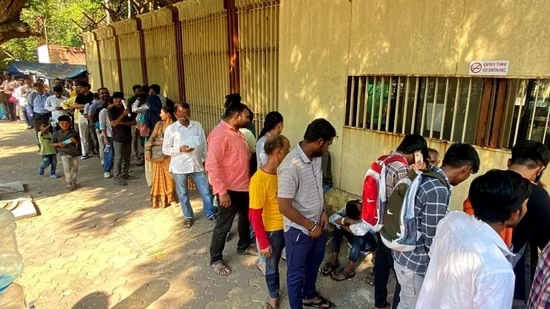
 India8 months ago
India8 months agoThe afternoon briefing revealed that 97.26% of the ₹2000 notes were returned, and the Israeli Prime Minister committed to war goals.
-
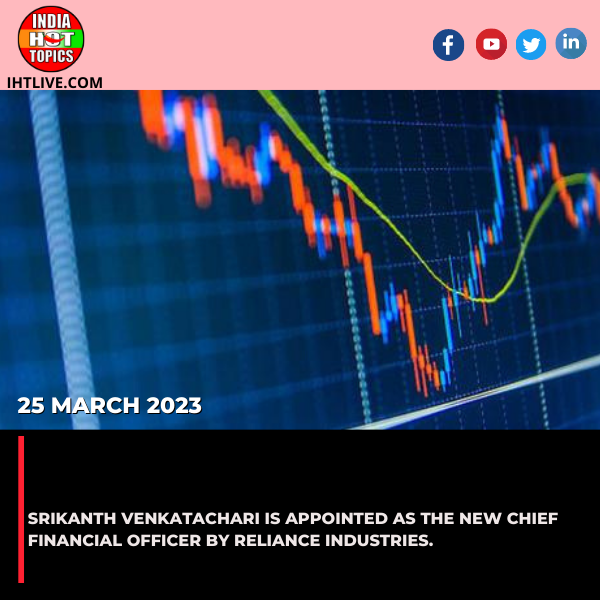
 Business1 year ago
Business1 year agoSrikanth Venkatachari is appointed as the new chief financial officer by Reliance Industries.
-

 Entertainment1 year ago
Entertainment1 year agoNew Season 8 The Walking Dead trailer flashes forward in time
-
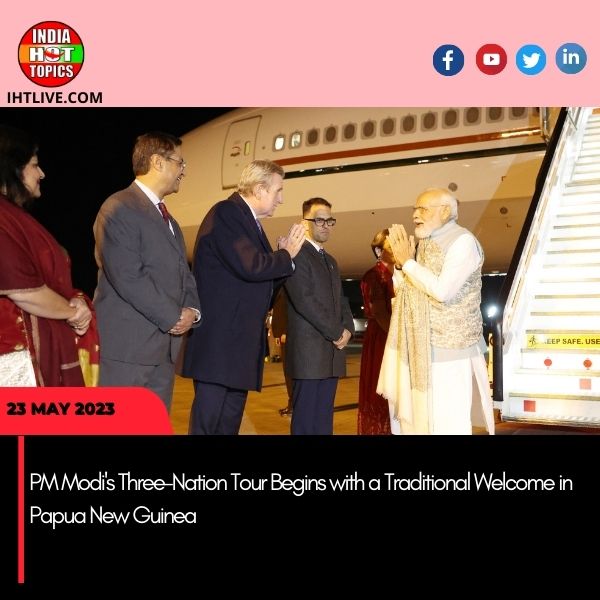
 India1 year ago
India1 year agoPM Modi’s Three-Nation Tour Begins with a Traditional Welcome in Papua New Guinea
-

 Fashion7 years ago
Fashion7 years agoThese ’90s fashion trends are making a comeback in 2017
-

 India Hot Topics12 months ago
India Hot Topics12 months agoCenter ‘busts’ 8 YouTube channels for distributing false information.
-

 Business7 years ago
Business7 years agoThe 9 worst mistakes you can ever make at work
-
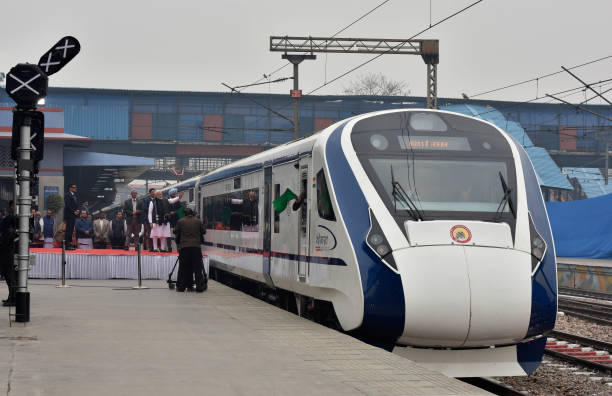
 India1 year ago
India1 year ago3 Vande Bharat Trains, An E-way: MP’s Infra, Connectivity Projects on Fast Track ahead of Assembly Polls








